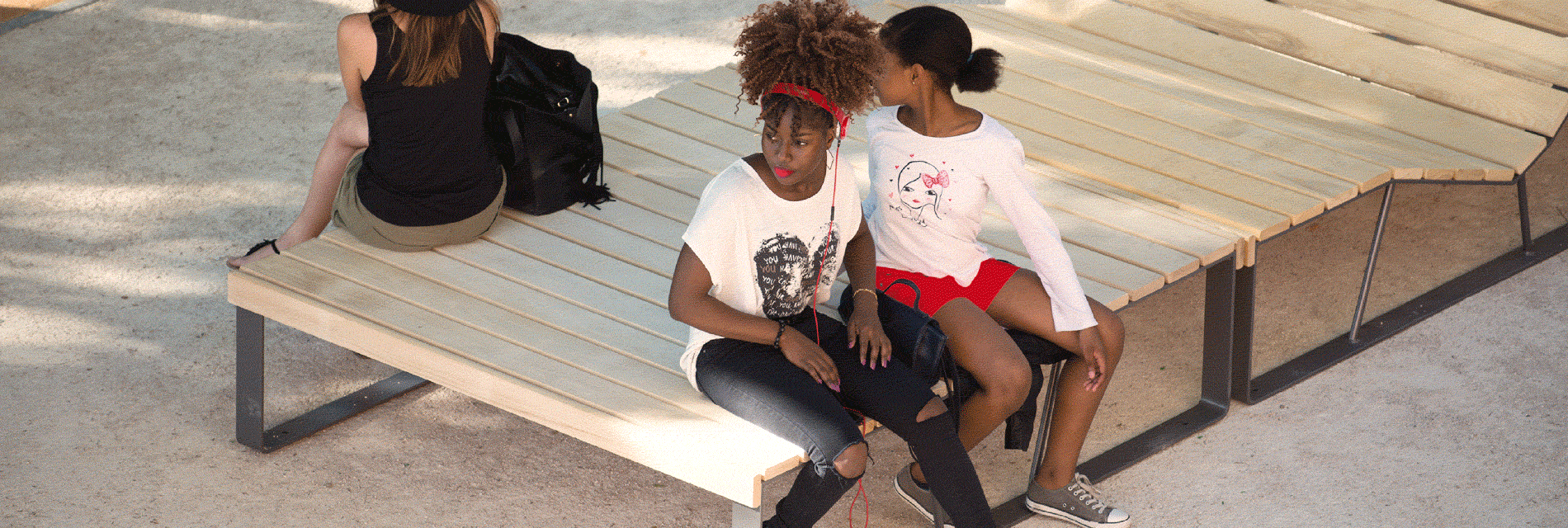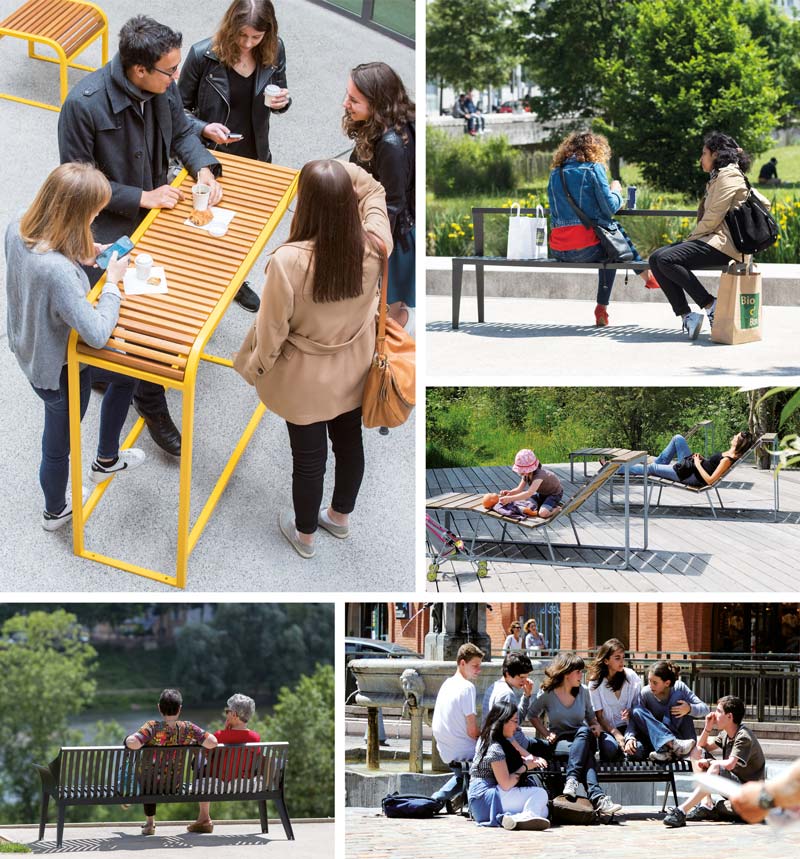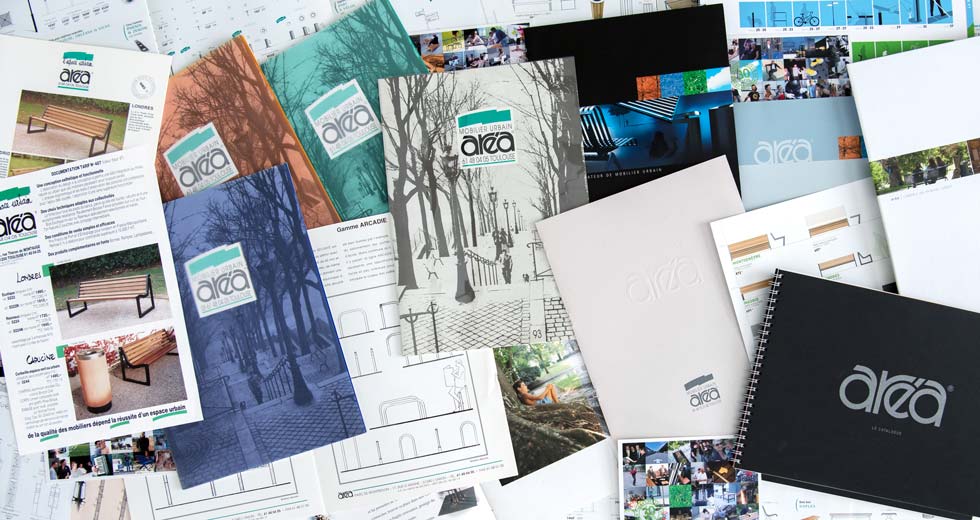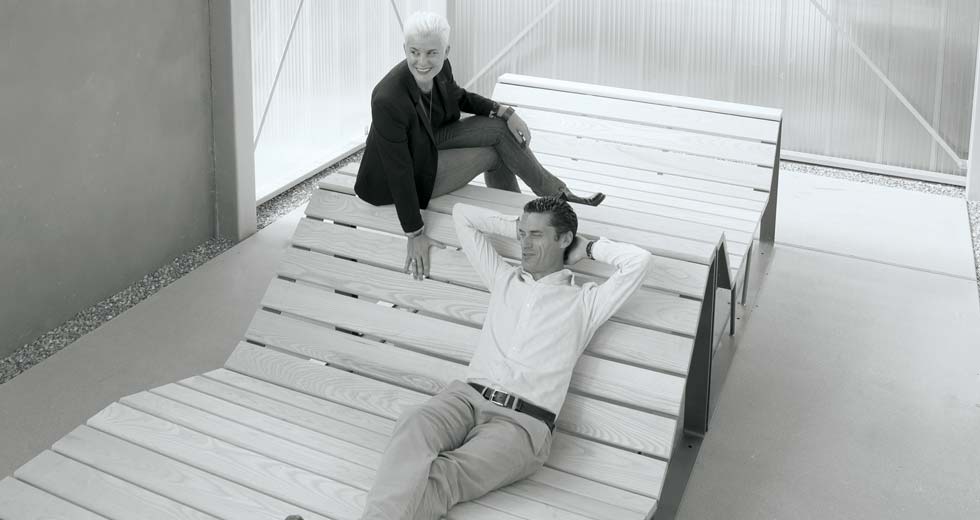
And if the smart city became clever?
For us, what is sustainable has the capacity to last: our furniture has a design and a manufacturing which, aesthetically as mechanically, allows them to resist time.
It is this desire for effective, not just theoretical, sustainability that leads us to watch suspiciously anything that can be a source of premature aging and distrust anything that represents an entry point for planned obsolescence. We exclude the idea of any accessory likely to perish our furniture: no mobile phone chargers, no photovoltaic panels ..., which will be defective, outdated or degraded well before the object itself.
Contrary to the opinion that has emerged, we do not know why or how, we consider that the smart city can only be truly clever by recognizing the human as an actor of the city and not just as a simple user.
100% low-tech, our products intend to serve the living amongst each other and the creation of social links. Their purpose is therefore to foster connection with the immediate human environment by stimulating dialogue, generating contact ...: a vector of socialization at the service of a peaceful public space.

Constantly observing people, the city and its uses for 30 years, we have indeed acquired the structuring conviction that the only social network of the future is called the human.


